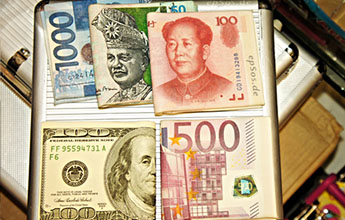
Currency Manipulation Explained
|
 |
A new study aims to explain how currency manipulation affects workers and businesses. |
Most of us only know currency as the stuff we have (or wish we had) inside our wallets.So, wouldn’t it be nice to have someone who knows the subject and how it affects both businesses and workers boil down exactly what currency manipulation is and how it works?
That’s just what Dave Johnson does in What is Currency Manipulation, posted on the blog of Campaign for America’s Future.
Johnson, who has more than 20 years of experience in technology, was a pioneer in the design and development of productivity and educational applications of personal computers, says:
Right now China and several other countries believe it is in their country’s interest as a country to run a huge trade surplus with the world which brings in cash, jobs, factories and industries as the rest of the world. So acting as a country, they buy up dollars and other currencies to force up demand and cause those currencies to have a higher, “stronger” price than their own currency.
The problem, Johnson says, is “The U.S. does not see itself as a country when it comes to trade, and does not see itself as having a national interest.” He says:
It’s against the current dominant ideology to act as a country or to have--any--particular national interest when it comes to trade … We send our businesses out alone to compete in the world -- against countries
“While we live in a complex world, it is not unknowable,” says International President Edwin D. Hill.
“Before we hitch our wagons to any policy makers or political leaders who claim they have a solution to problems, like currency manipulation or unfair trade, we have a responsibility to learn as much as we can about those problems.”
Read: What is Currency Manipulation?
![]()